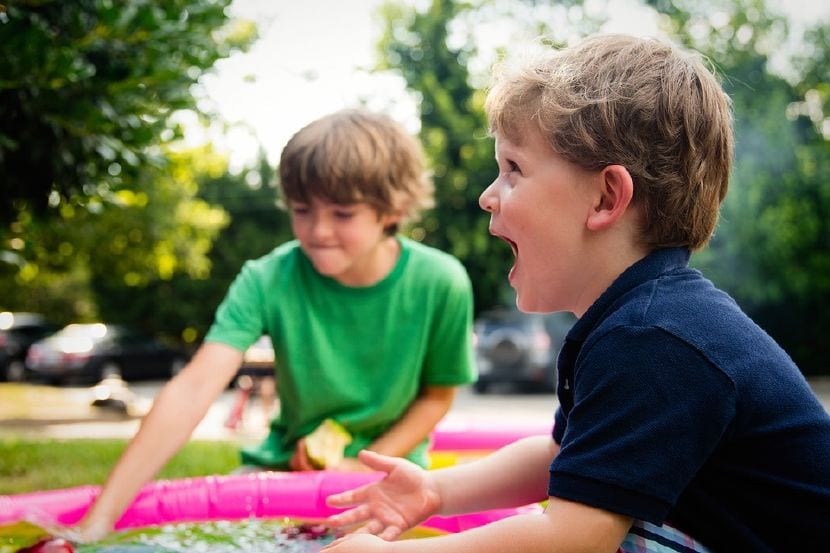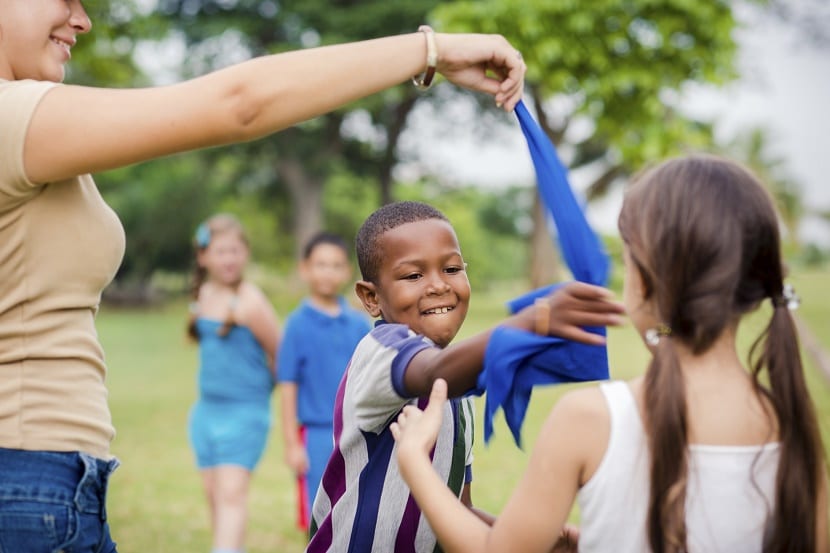
Any parent wants their children to be social, that is, to have good social skills and that they are able to interact normally with other people. To achieve good social development, it is necessary to work with children from a young age so that they develop good social intelligence.
To achieve this, it is very important that they know how to control their emotions based on their social interactions. It is also important to work on empathy and assertiveness, as well as resilience. All this will be possible if they are able to express their emotions and feelings without the need to hurt or harm others.
When these skills are achieved, children will be happier in their current life and also in their future. Emotional Intelligence is the ability to manage your own emotions and relate well to others. This is cruel to the social development of children.
How to get your children to have a good social development
Empathize
You will have to be a good example of empathy with your children, so they will learn to develop empathy for others. Empathy is the main basis for children to have successful interpersonal relationships.
Guide them in the game with others
There are children whose children hit others during social interactions because they feel angry and don't know what else to do. If you are there to guide them, you can teach them how to defend without hitting: "Yes, Ryan took your toy and you don't like that, you can tell him it's yours and that you'll lend it to him when you stop playing with it." In this way, your child will know that you are by his side and that you will guide him to learn to socialize correctly.
Don't force him to share
Following the previous example, if your child does not want to share, do not force him to do so. If you do, you will be delaying good sharing skills. Children need to feel safe with their things before leaving it to others. You better introduce the concept of taking turns playing with her toys so she won't think that others are snatching them from her against her will.

Decide how long your shift is
If children believe that adults will snatch a toy once they think they have played enough, then you are modeling hoarding, and the child generally becomes more possessive.
If the child is free to use the toy for as long as he wants, he can fully enjoy it and then leave it with an open heart to share it with others. When he is allowed to give the toy to the other child of his own free will, he enjoys that feeling of bestowal; that's the beginning of generosity.
Intervenes when you feel compulsive
Sometimes when children play with a toy, others love it immediately, although before they were not interested when no one was playing with that toy. Observe when this happens, since most of the time it is not necessary to intervene because the children begin to share the game without problems. But if you see that your child is being compulsive with the toy then you will have to intervene.
If your child wants another child's toy, he will need help with those compulsive feelings. In this case, you will have to rework the habit of taking turns. Do it from serenity, empathy and affection
Teaches assertiveness
It is necessary to practice assertiveness from home so that you are able to say what you think without hurting others, expressing what you feel. It is ideal that this is worked from home in moments of play, like this, When he has to do it in contexts where you are not present, he will be able to express his emotions correctly. Language skills are essential in this case, you need to teach him that all emotions have a name and a meaning.

If you don't want to share a toy, you'd better put it away
If your child has a special toy that he doesn't want to share with anyone, don't make him do it. If your friends are going to play at home, you can choose the toys that you do want to share and those that you don't, you can save them so that your friends don't want to play with them.
Set clear boundaries
Children need limits to know what is expected of them at all times. In this sense, it is necessary that you make it clear what the rules are in the game and in the relationship with others. Children have the right to have their own feelings, but all people are responsible for what they do with their arms, legs, and feelings. Our job as parents is to teach them healthy self-management techniques without being punitive, which always makes children more physically aggressive.
Putting words to feelings
Naming emotions and feelings is essential for children to understand how to process the emotions they feel verbally rather than physically. The exception to this is when children are in the middle of a great emotion and it is too intense, they are many things that they feel in a certain moment. In these moments it is necessary that you make sure that your child is safe and above all, that what happened later is reflected in a moment of calm. Your child will need to be understood but not judged.

Remind your child that behind anger there is an emotion that must be understood
When a child is angry, in addition to knowing that he is, it is necessary to find what it is that has made him feel that way. In this way you can reflect on what happened and look for a solution to find calm again.
Once you have all this in mind, you must remember that you are their best role model and that therefore, you will have to educate your children through calm, unconditional love and respect. It is also very important that you do not forget that they are children and that as such, they should behave like this, they will not have perfect behavior because they are learning social norms and how they should behave through your guide and your example.